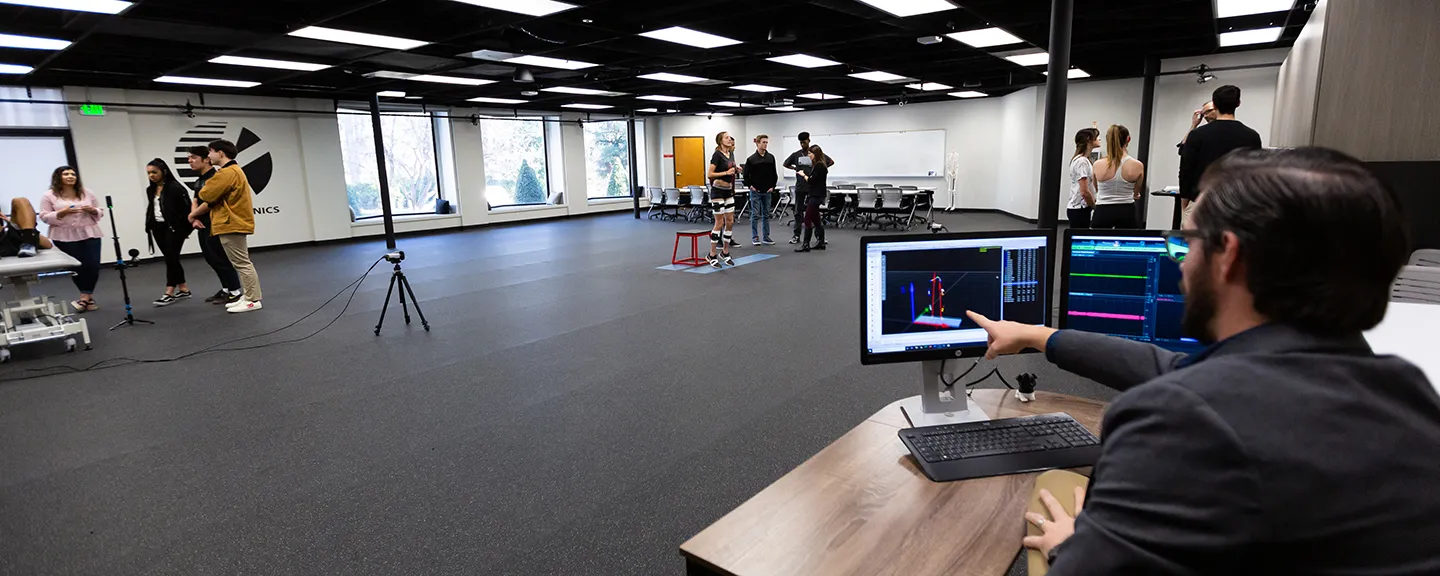- Home
- >
- APU Articles
- >
- News Article
Impact Healthcare Careers with a PhD in Rehabilitation and Movement Science
June 25, 2020 | Written By Tobin Perry

PhD in Rehabilitation and Movement Science Career Paths
Many (if not most) graduates of this PhD program go on to pursue careers at universities, where they educate professionals in preparation for different healthcare jobs. While most graduates will go into academia, their career path may vary depending on their interests.
Here are a few of the pathways available to those who graduate with a PhD in Rehabilitation and Movement Science:
- Educators: Many students go on to teach in professional programs such as physical therapy, occupational therapy, and athletic training.
- Researchers: If you have a passion for research, this degree prepares you for opportunities to conduct research in the field of rehabilitation and movement science.
Graduates Are in High Demand
Graduates with this degree are in demand nationwide. Higher education institutions are looking for PhD graduates who can conduct research that influences clinical practice, and are well-equipped to teach students.
“Most educational programs that lead toward a professional licensure require that a certain percentage of faculty have PhDs, in order to maintain accreditation,” said Annette Karim, PT, DPT, PhD, director of Azusa Pacific University’s PhD program in Rehabilitation and Movement Science.
How You’ll Benefit from APU’s Program
The PhD in Rehabilitation and Movement Science program is a way for professional clinicians to broaden and contribute to education, evidence-based practice, and research in the multidisciplinary field of rehabilitation and movement science. Current clinicians and academic clinical faculty who seek to focus their careers in education or research will benefit most from APU’s PhD program.
Karim explained that the PhD program includes content in research methodology, pain science, movement science, motor control, biomechanics, teaching and learning, and includes opportunity to focus on individual interests.
Throughout the program, APU faculty integrate a Christian worldview with a focus on human worth and dignity. “While our students come from a variety of faith backgrounds, our program introduces a Christian worldview by integrating faith discussions and faith-integration assignments in our courses,” she said.
APU also specifically designed the program to support working professionals. Students can complete most of the program online and during two, one-week sessions on campus per year.
“Online education propels the student into technology and communication via platforms such as Zoom and Canvas,” Karim said. “Given our current world situation, an online program that emphasizes real connection and reflection while pursuing excellence in research and teaching is something that our students find valuable.”
Students in the program also benefit from APU’s dedicated PhD lab and a motion capture lab that is shared between the kinesiology and the physical therapy programs. In the motion capture lab, students have access to force plates, EMGs, a jump mat, an in-body scanner, Noraxon portable motion capture, and other equipment.
APU in the Moment | Biomechanis Lab
“In addition to the technology, the students benefit from the collaboration between faculty with different areas of expertise when looking at a research question,” Karim said. “That makes this program rich with experience from many fields of study.”
Are you interested in learning more about opportunities with this degree? Explore APU’s Rehabilitation and Movement Science program or inquire for additional information.